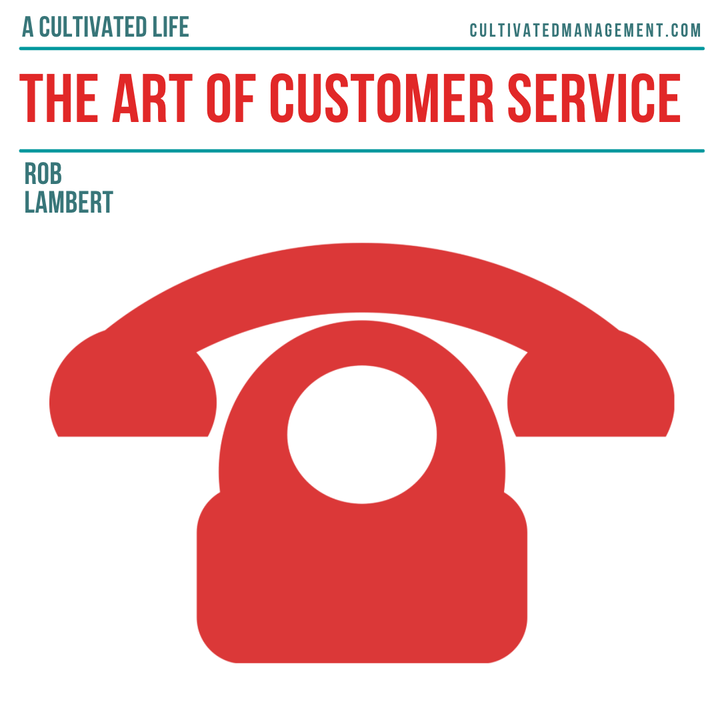The failure of Customer Service
In this article I explore a few simple ideas for improving customer support experience.

Customer service is an interesting concept to study in your daily lives, as it can tell you a lot about the management, culture, communication and competency of an organisation.
Customer service is an outwards demonstration of management and leadership. You can tell a lot about what a company (and its managers and leaders’ value) by the customer service provided.
I worked with one technical support manager who asked me (as VP of HR) what the costs would be to open the office for 24 hours a day (think security, lease, insurance etc). I didn't quite understand why she'd asked me this.
At the time I worked for a company who provided a cloud solution that enabled companies to set up teams, with remote employees, anywhere in the world. We sold the solution on the fact all your people needed was a phone number and an internet connection. They could freely work wherever.
So, I asked the support manager why the team working through the night, supporting customers in other time zones, using our own product, needed to be in the office.
The support manager's answer told me all I needed to know about how that team was managed.
The response was:
“Because I don’t trust them and need a manager to watch them”.
My immediate response was “Why did you hire people you don’t trust?” Blank face.
Instead of hiring the right people and then providing them with a great vision, inspiring reasons to work hard, freedom to do what was needed for the customer, freedom and guidance to overcome problems, and clear consistent management, she had hired with no due diligence and tried to instil amazing customer service via mantras, posters on the wall, carrots, sticks, workplace tool monitoring, arbitrary targets and fear.
It didn’t work.
Customer satisfaction was poor and staff turnover high.
Every single business with poor customer service has a management problem. Miserable front-line staff represent miserable and damaging management tactics. Every company with poor processes, poor data management and poor timely responses shows everything you need to know about management - and how and where they focus their energy and attention. (I did a book about management energy and attention here).
Every shop you go into where you feel like you have to bend to meet the weird and inflexible store policies, is a company that values standardisations and treats all customers as the same – a management issue.
Every time you have to do a company’s work for them as their customer – is a company with poor leadership and management.
There is no way to create excellent customer satisfaction without first creating excellent staff satisfaction.
If your people are motivated, clear on what success looks like and being treated like people – then this will naturally be passed on to your customers.
No matter which department you are in, you are part of the customer service journey. Even if you’re not front line.
Here’s some general advice on customer service:
Hire for the person not the role
Hire people who want to do good work. Who are positive. Who care. Who are nice people to be around.
Improve the customer service process from the customer’s perspective
Staple yourself to work and understand the system – and then improve it – from the perspective of the customer.
Treat people like people
Treat people like clever, self sufficient and talented people (you did hire these types of people right?) and let them make front-line decisions on how to ensure the customer feels looked after.
It can be tempting to codify and script every response, every interaction, every nuance – but exceptional customer service means treating every customer as exceptional. They are, aren't they? How do you codify that?
Mantras don't change behaviours
Don’t use posters, banners, mantras and handbooks to demand better customer service. Role model it, improve the process and care about the customer. Show people how to treat the customers as exceptional people and highly valued to the organisation.
Don’t allow bad mouthing about customers to take place
In one company I consulted with, they had a list of the most hated customers on the wall! Wow. They actually hated their customers, the very people the business needed to survive.
All this does is breed contempt – without the customers there is no business.
It makes more sense to work out why customers are unhappy and solve their problems, than it does to talk rubbish about them.
Don’t throw money at the problem of customer service
Too much money can stifle creativity and bring in a reliance on expensive tooling that often doesn’t solve problems.
Instead, encourage your staff to come forward with ideas on how to make work better, how to improve service and how to optimise processes.
Even better, show them how to make improvements carefully and scientifically -and then let them do it without running everything past you!
Have a good product or service in the first place
The best way to ensure great customer service is to ensure you have a great product or service in the first place.
The most cost-effective way to provide great service is to improve the product or service.
If you’re on the front line of a business, you have a great swathe of data to feed into whoever is building and designing the product and service. You have real problems and issues, and insights, find out how to get these in front of the people building the product or service - so they can make it better.
Another way to frame this is to look at costs. How much is it costing the business to support a rubbish product or service? How many calls come in? How much time is spent dealing with a poor product or service? How many customers are leaving? How satisfied are customers?
And then work out whether any of these costs could be reduced, or offset, by investing in making the product or service better in the first place.
People want to work in an environment of co-operation
Find levers to pull to “force” cooperation such as removing budgets, removing single power controls and providing unified cross-functional goals where people must work together to achieve them.
Role model cooperation, demonstrate that learning is constant and show people how to own up to mistakes. By doing this you will show people that it's ok not to know everything, or get everything right, or be the font of all knowledge - and that we all need help some times.
We all need each other in an organisation. We are all connected. Everything we do has a push or pull effect somewhere else in the organisation.
Give customer's time, focus and attention
Let people take whatever time they need with the customer to make the customer feel exceptional.
One of the worst things you can do for front line staff is curtail how much time they spend with the customer.
If you’ve hired well, these people will know when they’re done with the customer - and the customer is satisfied. And the customer will notice that.
Drop the policies
Customers want to deal with people – not corporate policies.
There really are very few people in the world who will take advantage of your business – so why build policies for this angry minority when the majority of your customers want what they paid for?
And with that – I hope you go forth and build great customer service. And if you can suffer any more of my writing – you may find this Blazingly Simple Guide to Building a Support Team helpful.


